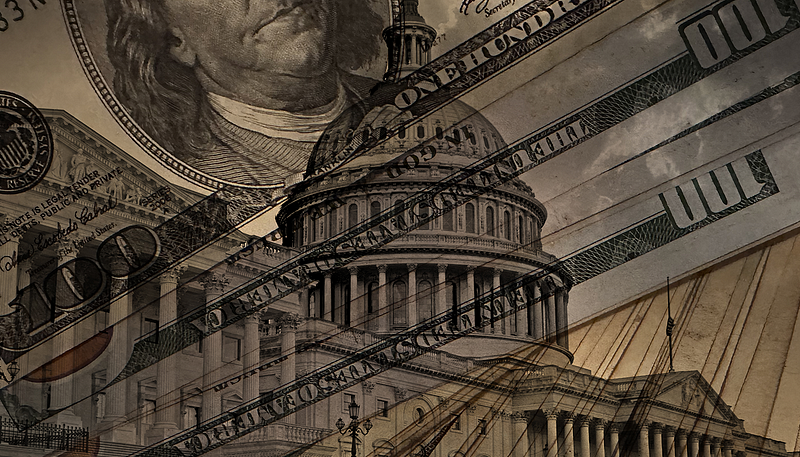What Makes Companies Choose Dark Money?
New research sheds light on the strategies corporations use to conceal their political activity
Based on the research of Timothy Werner

Deep Throat’s advice to reporter Bob Woodward to “follow the money” in the 1976 film “All the President’s Men” still resonates decades after Watergate. It remains arduous work, especially when corporations deliberately make their political money hard to follow.
Legal corporate political activities, including lobbying and campaign contributions, are often designed to cloak the companies behind them. That concealment is an enduring part of the U.S. political system and an intriguing source of study for McCombs’ Timothy Werner, an associate professor of business, government, and society.
In a new theoretical paper, Werner — along with Nan Jia of the University of Southern California and Stanislav Markus of the University of South Carolina — sheds light on the strategies corporations use to hide their political activity.
Werner and his colleagues developed a calculus to compare the costs and benefits of concealment and its effects on the corporations themselves, policymakers, business competitors, and the public.
“It’s the first research piece to really do that,” Werner says. “It’s new for management scholars to think about.”
For example, Werner says, when the U.S. Senate was evenly split between Republicans and Democrats, it was no secret that Sen. Joe Manchin, a conservative West Virginia Democrat, was the person to influence. Corporations had good reasons to persuade Manchin to vote in ways that benefitted their interests.
Voters wanted to know about their efforts, but little information was available. “If you’re only looking at observable political activities of corporations, it’s like looking at the tip of the iceberg,” Werner says.
The researchers wanted to explore below the waterline. They found that when corporations conceal their political activities, they may use a wide variety of strategies.
· Lobby people who are not obvious political players.
· Secretly create a “citizens” coalition” to advocate for their position.
· Use obfuscation to spin an issue in their favor.
· Contribute to groups that aren’t legally required to report their donors, known as “dark money” groups.
How do they decide when to use these strategies? The researchers developed a mathematical model of a company’s political decision-making, to help predict which activities it’s most likely to hide. Their calculus finds:
· The lower the costs of concealment, or of being caught, the more likely companies are to attempt it.
· Companies are more likely to conceal their activities on issues where they reap most of the benefits or bear most of the costs.
· The harder it is to win a lawmaker’s support, the more a company will try to hide its spending to influence that lawmaker.
Werner says this line of research opens an important conversation. “The more we understand about the reasons a business does or does not conceal its political involvement, the more informed our decision-making around policies related to transparency,” he says.
“Theoretical Light in Empirical Darkness: Illuminating Strategic Concealment of Corporate Political Activity” is published in the Academy of Management Review.
Story by Mary Ann Roser


